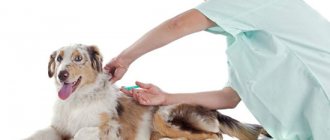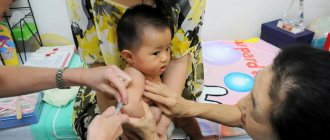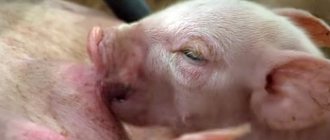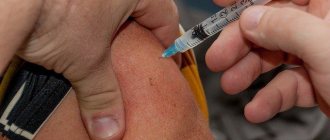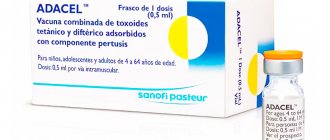Vaccinations for Chihuahuas are mandatory preventive measures. This allows you to protect your pets from infections that the animal can contract absolutely anywhere.
Many breeders of dogs of this breed prefer to ignore the recommendations of veterinarians, explaining this by the fact that the four-legged friend does not have any contact with other dogs.
In this regard, the question often arises about whether there is a need for vaccination and how to carry it out correctly without causing harm to the pet’s health.
Why do you need to vaccinate your dog?
Chihuahuas are rather fragile dogs with weak immunity. Therefore, they, like representatives of other miniature breeds, are susceptible to many viral diseases. Some owners think that if the puppy lives in an apartment and relieves itself there, it does not need vaccination. This is a big misconception: family members can easily carry a serious infection with their shoes.
Purpose and functions of vaccination for Chihuahuas:
- Vaccinating your puppy significantly reduces the risk of contracting severe infections. Many of them are fatal to sneezes.
- Reduce mortality during pet illness.
- The dog receives the right to participate in dog shows and be with the owner on public transport.
- Protects the immune system of an elderly dog. With age, the health of sneezes inevitably weakens, so any disease becomes potentially dangerous.
What you should pay attention to
You should start monitoring your pet a few days before the planned vaccination. If during this time the Chihuahua had diarrhea, vomiting, or malaise, the dog should not be vaccinated.
The attentiveness of the owner and the responsibility of the veterinarian will help reduce the risk of developing post-vaccination complications. When visiting the clinic it is important:
- Make sure the suitability of the drug (evaluate the expiration date, storage rules, tightness of the packaging).
- Make sure that the doctor does not forget to include information about vaccination in the veterinary passport, with what drug and when it was done.
- Ask your doctor about what complications may arise and what symptoms you should pay attention to.
Chihuahua vaccination schedule for up to one year
Vaccinations for Chihuahuas are done based on a special vaccination calendar, which was developed specifically for the breed. As mentioned above, your pet should be vaccinated from childhood. Babies are much more vulnerable than adults.
Chihuahua vaccination table by age:
| Dog age | Name of the drug administered |
| 2 months (8 weeks) | At this age, the puppy is administered “Nobivac Lepto” or “Nobivac DHPPi” |
| 3 months (12 weeks) | Revaccinate the puppy with the same drugs |
| 6-7 months (30 weeks) | The puppy is injected with “Nobivac DHPPI” or “Nobivak Rabies” |
| One year | The baby is vaccinated against rabies with the drug “Eurican LR” |
The first vaccine, which is given at two months, prevents the development of:
- plague;
- parainfluenza;
- enteritis;
- leptospirosis.
The second vaccine consolidates the results after the first vaccination. The third is done when the dog’s teeth are completely renewed, that is, at 6-7 months.
The rabies vaccine is not given before the baby is one year old, since Chihuahuas are difficult to tolerate it at an early age. The medicine "Eurican LR" is effective for almost three years, but due to the aggressiveness of the disease, revaccination is necessary every year.
After the dog turns one year old, it must be brought in for booster vaccinations annually throughout its life. It is not advisable to miss your vaccination date.
When to vaccinate
Typically, breeders give away puppies at the age of 3-3.5 months. By this age, it is desirable to have the first vaccinations, which are given from 2 months of life. The procedure is then repeated every year, being careful not to allow too many gaps between visits to the veterinarian. Early vaccinations can have a detrimental effect on the health of the entire litter; there are cases where all puppies died due to premature vaccination. Modern medications protect dogs from the following diseases:
- infectious enteritis;
- rabies;
- parainfluenza;
- plague;
- hepatitis;
- leptospirosis;
- adenovirus.
All previous vaccinations and deworming must be recorded in a special dog passport so that you can track the timing of the next scheduled vaccination. The Chihuahua cannot go outside until the procedure has been completed and a routine veterinary examination has been completed.
What vaccinations can I refuse?
In connection with recent events, scientists have developed a canine vaccine against coronavirus. But most dog handlers and experienced breeders do not recommend giving it to your pet. There are two reasons for this:
- firstly, it provides only limited protection to the puppy;
- secondly, the disease is considered relatively mild; dogs with coronavirus do not have noticeable symptoms. Signs of the viral disease appear exclusively in tiny puppies that are under six months old.
Therefore, refusing to vaccinate Chihuahua puppies against coronavirus is completely justified. There are no obvious reasons why a sneeze vaccine should be given.
Another disease that some owners of Chihuahua puppies refuse to vaccinate is leptospirosis. The fact is that the infection is transmitted when the animal comes into direct contact with infected elements, for example, soil or water, feces and urine. Even fleas and ticks can carry the infection. And no modern veterinary drug can protect the Chihuahua from more than 200 species of the causative agent of leptospirosis. Another argument in favor of refusal is the frequent complications in puppies after vaccination.
Other vaccinations, including rabies, are mandatory for a Chihuahua puppy.
How the vaccine works
No vaccine provides 100% guarantee of effective protection against external pathogens, viruses and infections. However, vaccination is an important preventive measure aimed at a protective reaction and strengthening the immune system against viruses against which a medical drug has been developed. Some drugs protect against one disease, others against several (combination vaccine).
When creating a vaccine, virologists kill or chemically replace the original pathogen so that it is not capable of causing disease. This is a methodical process because... the virus or bacteria must still contain its original protein molecules (antigens) for the dog's immune system to produce antibodies. A vaccine containing a strong pathogen may cause the disease rather than prevent it. On the contrary, a pathogen that is too weak will not offer adequate protection.
How to prepare a puppy for vaccination?
First of all, you must pre-register for vaccination. Having agreed with the veterinarian on a specific date and time of the appointment, you can begin preparing your pet. So, the preparatory activities are as follows:
- 10-14 days before the vaccination (no matter what it is), it is necessary to worm the Chihuahua puppy. The fact is that worms interfere with the proper absorption of antigens, thereby greatly reducing the effectiveness of vaccination. Another reason why you need to worm your dog is to increase the risk of adverse reactions and post-vaccination complications. Recommended drugs are Drontal Plus or Procox.
- You also need to treat your puppy for fleas 10-14 days in advance.
- On the day of vaccination, you need to feed your pet as fully as always.
- Three hours before vaccination, you need to measure the puppy's temperature. Its increase may become a contraindication to vaccination.
- It is necessary to examine the mucous membranes of the Chihuahua puppy and assess its health condition. It is necessary that the dog is completely healthy.
Some veterinary clinics offer home-based vaccinations. This is much more convenient than taking a Chihuahua puppy to the clinic and subjecting it to unnecessary stress. But before inviting a specialist to your home, you need to make sure that the clinic has a license.
Quarantine is a must after the vaccine
To maintain the normal health of your four-legged friend and protect him from more serious consequences, the breeder will have to follow certain recommendations after vaccination.
The duration of quarantine usually takes about fourteen days.
During this time it is prohibited:
walking the animal on the street;- allow contact with other individuals;
- bathe;
- expose the injection site to scratching.
You also need to ensure that the body is not exposed to hypothermia . There should be no drafts in the room where the Chihuahua is constantly located.
It is necessary to ensure that the dog does not perform increased physical activity.
Caring for your dog after vaccination?
In the first two weeks after receiving the vaccine, the Chihuahua’s body begins to adapt to the administered drug. Immunity to infectious diseases is gradually developed. During this quarantine period, several rules must be followed:
- Do not take the puppy outside. This is a strict prohibition specifically for puppies who sneeze. After revaccination of an adult dog, quarantine is also required, but some veterinarians allow short walks with them in warm, dry weather.
- Chihuahuas should not be allowed to come into contact with other dogs or other animals. They are potential carriers of infection.
- Do not allow your pet to become hypothermic.
- Do not expose to emotional stress or physical overload.
During the first seven days of quarantine, you should not wash your Chihuahua. Water can cause a sneeze to catch a cold, especially if he has short hair. If there is any deterioration in health, you need to show your four-legged friend to a veterinarian.
What to do if you missed a vaccination?
In the hustle and bustle of everyday life, it is very easy to forget about the need to vaccinate your pet on time. Sometimes owners remember this much later than expected and do not know what to do next.
Regardless of the situation, there is no need to panic. Consultation with a specialist is important here. After calculating how many days have passed since the last vaccination, he will make a decision.
NOTE!
If your pet is less than two weeks behind schedule, then one vaccination will be enough. If we are talking about more impressive periods, then the Chihuahua will have to go through the vaccine and revaccination with a break of a month, as it was in puppyhood.
Possible consequences and complications after vaccination
Modern veterinary drugs used to vaccinate dogs are effective and safe. However, in individual situations, Chihuahuas experience certain side effects after the injection. These include:
- the appearance of swelling at the injection site, redness and pain when pressed;
- the dog refuses to eat;
- constant drowsiness, decreased physical activity;
- slight increase in temperature.
All of the above symptoms will disappear in the Chihuahua in the first two days after the vaccine. There is no need to take any urgent action. The main thing to do is to look after the baby and caress him more often.
If the owner notices that the Chihuahua is beginning to develop an allergic reaction, then you need to give him an antihistamine. For example, Suprastin. The dosage must be selected taking into account the weight of the dog.
Very rare, but it is possible to develop more severe consequences after vaccination. The following manifestations require urgent contact with a veterinarian:
- anaphylactic shock;
- severe intoxication of the body: nausea, incessant vomiting;
- labored breathing;
- severe itching all over the body;
- swelling of the dog's face and neck;
- allergic skin rashes.
If your pet remains lethargic and weakened for more than two days after vaccination, you should also show him to the veterinarian. Perhaps the dog already had health problems before vaccination.
Possible consequences
Often after the injection, the dog’s well-being changes:
- body temperature rises – the llama’s pads and nose become warm;
- a small subcutaneous lump appears at the injection site;
- the dog becomes lethargic and sleepy, refuses favorite games and toys;
- the pet loses its appetite and shows no interest even in treats;
- Puppies may have drooping ears.
This condition, as a rule, does not require correction. The dog's body develops immunity to the pathogen. Within 2-3 days the pet’s health should return to normal.
If there is no improvement and your four-legged friend’s condition only worsens, call a veterinarian immediately. Most often, this happens when the vaccine is given to an already sick animal. Since the vaccine begins to act only 10 days from the moment of administration, all this time the dog’s immunity is forced to fight with a double load.
If the dog becomes significantly worse after vaccination, Gixan serum will help it.
Features that are useful to know
There is no difference in the vaccination schedule, diseases for which vaccinations are given, and doses of drugs administered depending on the breed of dog. Breed does not affect the choice of vaccine.
You need to prepare for successful routine vaccination:
- Daily monitoring of the pet’s condition is required - monitoring the temperature, stool, and general condition. This is important because vaccinations are only given to healthy puppies.
- After consultation with a veterinarian, deworming is carried out before vaccination.3. Your pet needs to be provided with a nutritious, healthy diet not only before vaccination.
- A time interval (three to four weeks) between vaccinations must be observed.
- On the day of vaccination, the puppy can be fed as usual.
- Veterinary specialists vaccinate only clinically healthy animals.
A sick puppy is not vaccinated until he is in good condition. Vaccination is also not given to pregnant dogs and puppies under two months of age. At the 8th week of life, the pet must receive at least one vaccination. The vaccine against parvovirus enteritis is administered first (at 6 weeks).
There are many drugs for vaccination, both foreign and domestic manufacturers. For everything to go well, you need the advice of an experienced specialist. Having compared the individual characteristics of the animal (age, weight, health status), the doctor will draw up a schedule for all mandatory vaccinations in accordance with the standards and select the necessary drug.
Algorithm of actions when missing vaccination
Sometimes it happens that the puppy’s owner missed the vaccination and failed to give his pet the necessary injection on time. In such cases, you need competent consultation with a specialist regarding further tactics for managing your four-legged pet. If the delay in vaccination did not exceed two weeks, the doctor will most likely decide to administer the vaccine once. In case of more significant deviations in the timing, it is recommended to vaccinate as for puppies, that is, with subsequent revaccination.
Answer
Vaccination of animals against rabies comes first among other preventive measures. In the described case, the relevance of vaccination is undeniable; it is planned to travel outdoors, where contact with animals, including wild ones, is possible.
Rabies is one of the most dangerous infections that equally affects animals and humans. The main source of infection are sick animals - dogs and cats, and in rural areas, in addition, wild animals. Pets often become infected with rabies after being bitten by a fox or encountering a hedgehog.
Today, no medicine has been created to cure an animal from this dangerous disease. Animals infected with rabies die.
The virus is transmitted through the bite of a sick animal through saliva and enters the blood. It spreads throughout the body in the blood, affecting the central nervous system. The task of rabies prevention is controlled at the state level.
What to vaccinate against
The list of routine vaccinations given to Chihuahua puppies is as follows:
Advertising:
- Plague.
- Rabies.
- Parvovirus enteritis.
Vaccinations will protect your pet from many diseases.
- Parainfluenza.
- Leptospirosis.
- Viral hepatitis.
- Adenoviral infections.


